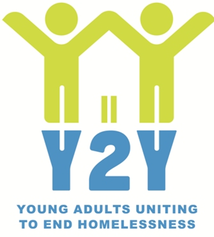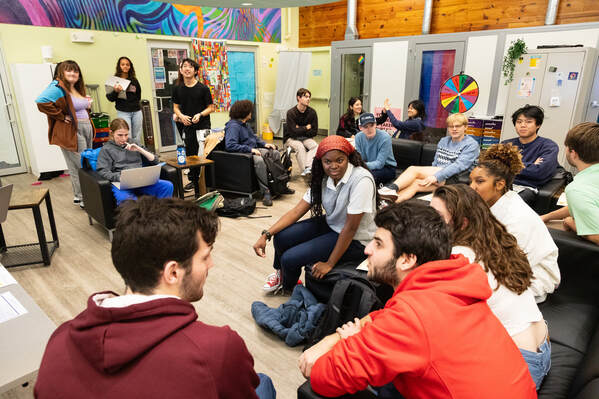|
What are Y2Y Network's guiding principles and values? Y2Y Network is building student-led programming to interrupt the cycle of homelessness for a generation of young adults. Y2Y Network employs a youth-to-youth model to provide a safe and affirming environment for young adults 18-24 experiencing homelessness. Y2Y guests have opportunities to collaborate with service providers, other youth experiencing homelessness, and student volunteers to create sustainable pathways out of homelessness and develop skills for long-term success. Y2Y provides opportunities for both guests and volunteers to become the next generation’s leading advocates for youth-driven solutions to homelessness. What are the ongoing services or programs that you provide? Y2Y Harvard Square is a 22-bed shelter serving young adults aged 18-24 who are experiencing homelessness. Along with 30-night stays, guests have access to showers, laundry facilities, hot meals, and case management programs. Are there any upcoming projects, initiatives, or events that your organization would like others to know about? With the return of emergency beds, Y2Y Harvard Square is expected to serve more than the 130 guests it had last year. We are meeting a critical demand in the community. We always welcome volunteers in the space or financial support. We would love the community to join us for Winter Walk Boston 2024 to bring awareness to youth homelessness. Has Y2Y Network had any recent changes?
Yes! Y2Y Network is excited to have brought Sasha Purpura on board as our new executive director. She comes to Y2Y with tremendous experience at her former organization, Food for Free and will guide the organization into the years ahead. If your organization was an emoji, which would it be and why? Y2Y Network is the smiley face with hugging arms emoji.🤗The majority of young adults who stay at Y2Y Harvard Square report that if not for us, they do not know where they would stay. Most turn to the streets, train stations or other unsafe public spaces. Y2Y is there to help these young people feel less alone and more supported. |
|
Contact Us
Cambridge Nonprofit Coalition
C/O Mission Earth
1257 Worcester Road, #312
Framingham, MA 01701
Elena Sokolow-Kaufman
Executive Director
[email protected], 617-401-7948
Cambridge Nonprofit Coalition
C/O Mission Earth
1257 Worcester Road, #312
Framingham, MA 01701
Elena Sokolow-Kaufman
Executive Director
[email protected], 617-401-7948



 RSS Feed
RSS Feed